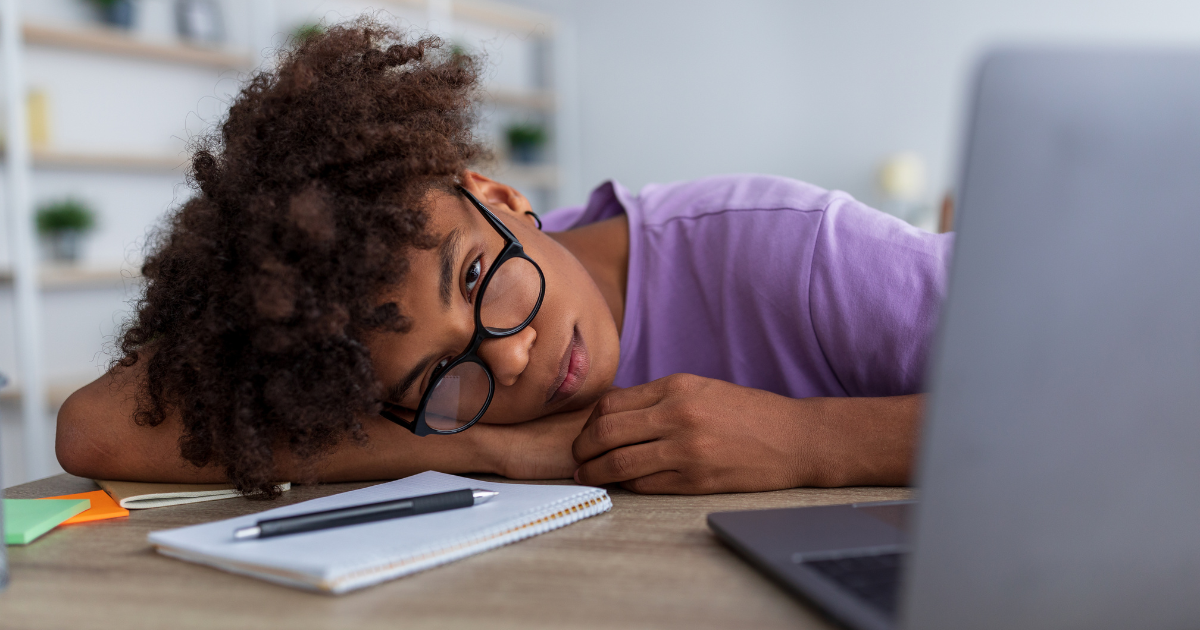Have you noticed your teenager being constantly tired, more so than they were before COVID began? Irregular schedules, homeschooling, less socialization and boredom during COVID exacerbated the circadian rhythms of adolescents, which naturally have the tendency to be later.
“More and more parents are noticing that their teens don’t have the stamina they once had, particularly on weekday mornings when they need to rise for school and activities,” says Dr. Innessa Donskoy, a pediatric sleep medicine physician at Advocate Children’s Hospital. “This is likely due to the mismatch between weekday and weekend waking hours. Just like the time it takes to adjust to a trip across different time zones, teens have needed to adjust too. Some who come to my practice are having trouble falling asleep and are concerned that they may have insomnia, when the reality is that they are trying to live on two different circadian rhythms –one for Monday through Friday and another for Saturday and Sunday.”
Dr. Donskoy offers this advice to teens needing to reset their rhythm. “Do things a bit differently on both ends of the sleep spectrum,” says Dr. Donskoy. “Make slight changes when you go to sleep and pay close attention to your wake-up times.”
- Listen and take cues from your body – when feeling sleepy, you’ll have an easier time falling asleep.
- Track your falling asleep times and wake-up times over 1-2 weeks, including days that you wake up without an alarm to better understand your internal rhythm.
- Try to get bright (outdoor) light exposure upon waking. It helps turn on your brain.
“Adults and children do much better when they are living in one consistent time zone day to day and week to week,” says Dr. Donskoy. “The bigger the mismatch, especially in regard to wake-up times, the more we tend to struggle to stay awake in the morning and then fall asleep at a desired time in the evening.”
Dr. Donskoy suggests setting your clock to wake up 15 minutes earlier each day until you can more closely align your schedule. Making a few changes can result in a tremendous difference.
Do you have trouble sleeping? Learn more about sleep apnea by taking a free online quiz.
This article originally appeared on health enews.






